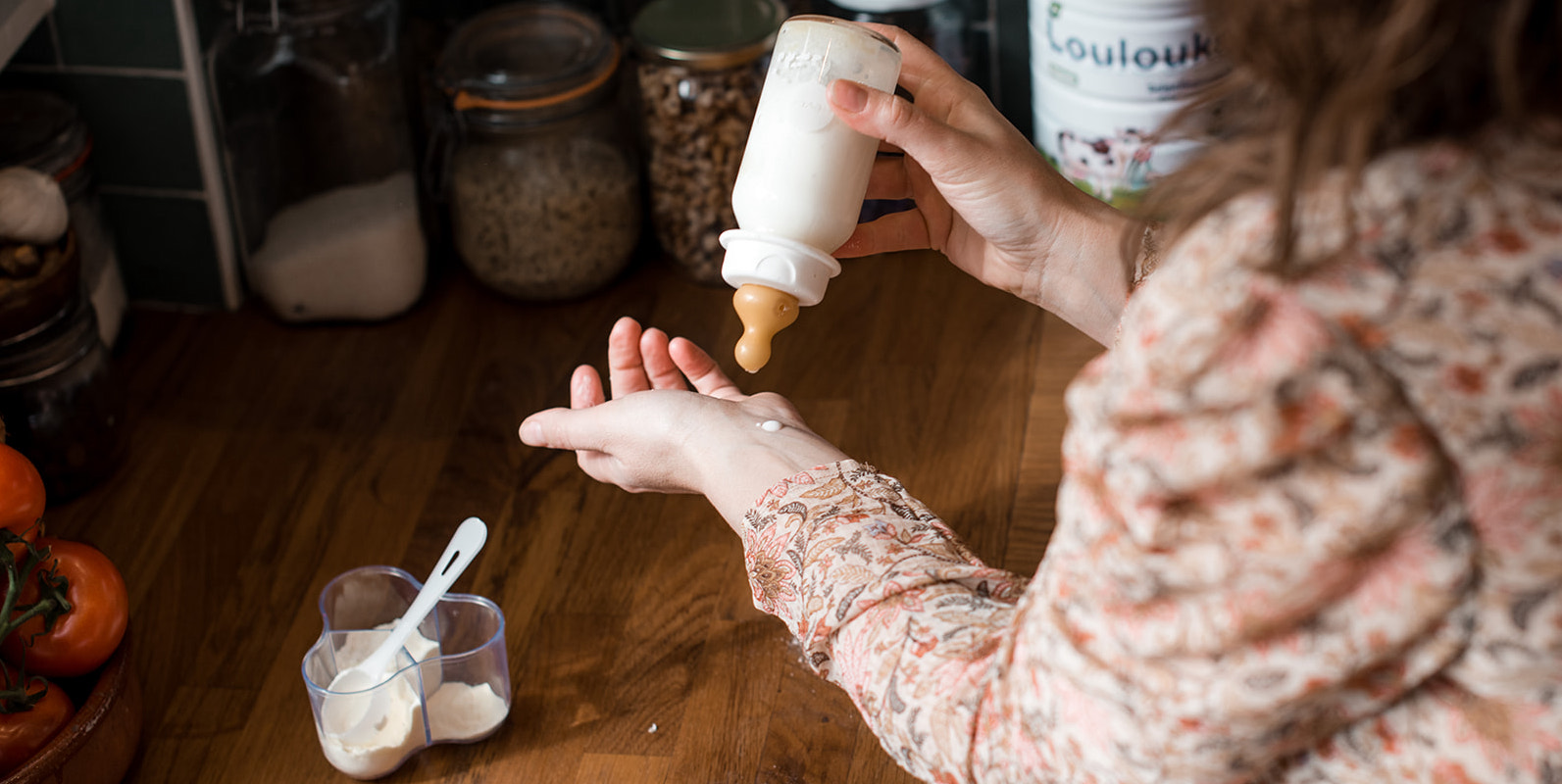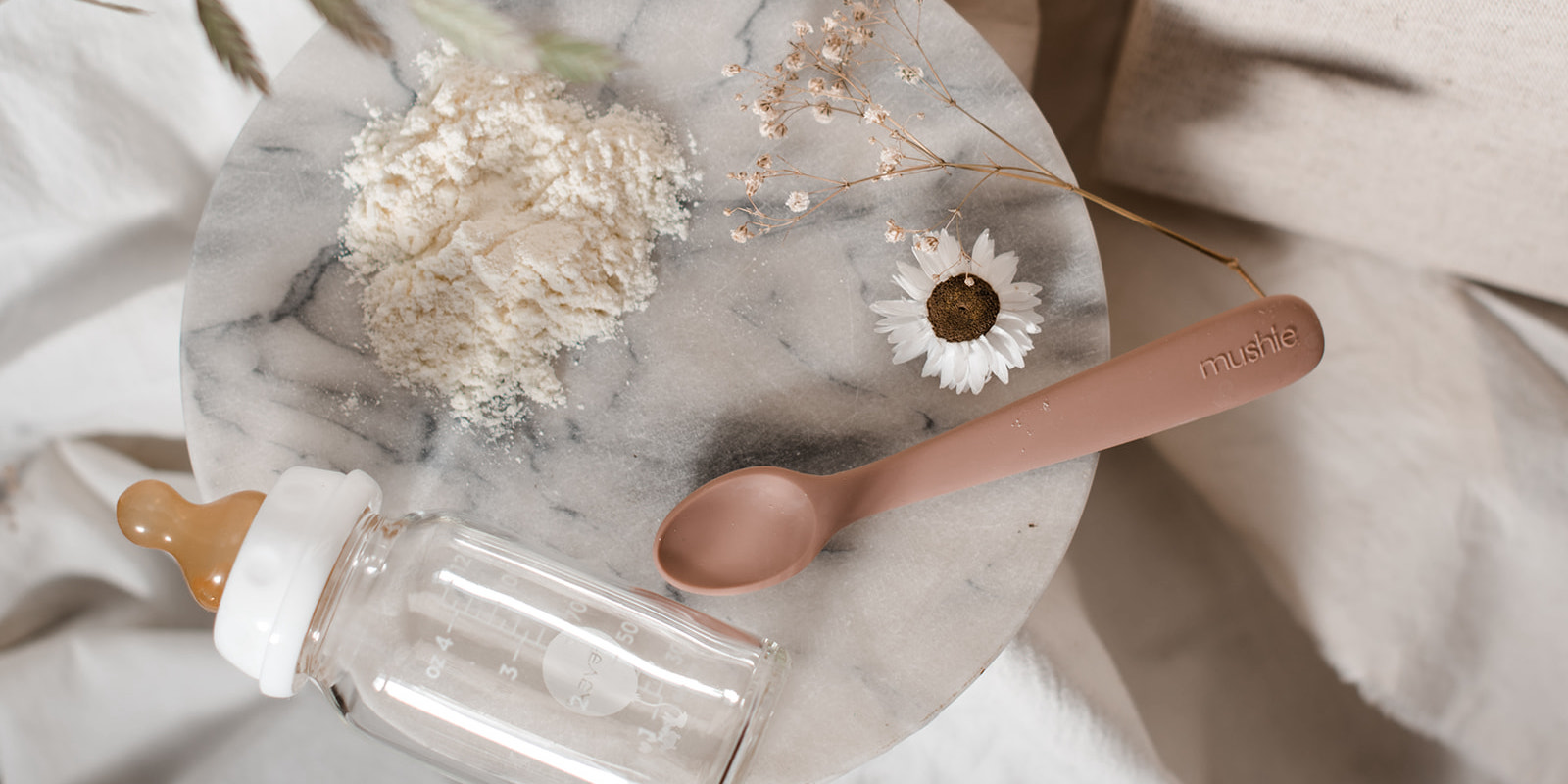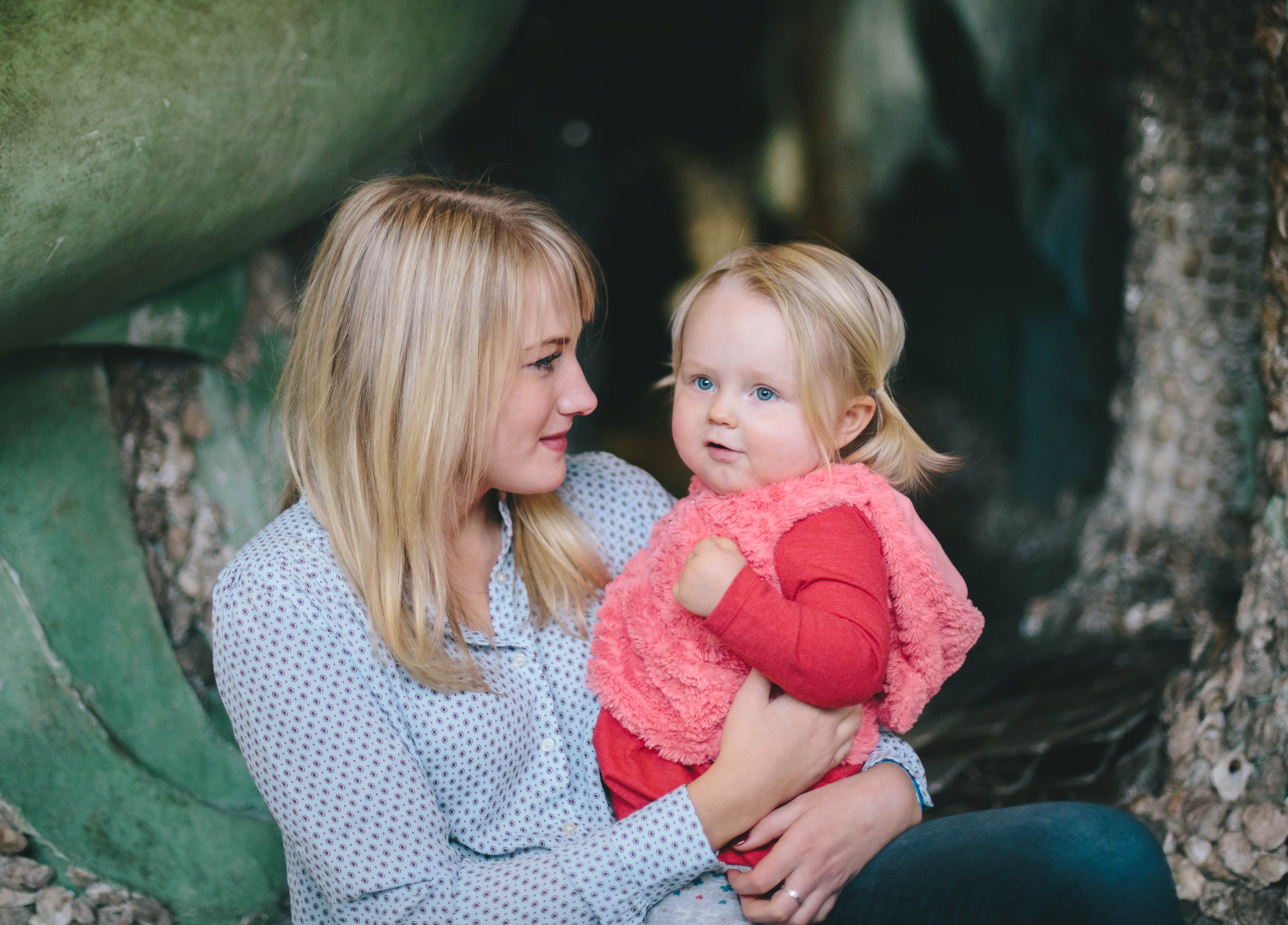"I noticed my little girls tummy felt like a brick after she drank conventional formula. Reading the label was an eye-opener: the second ingredient on the list was corn syrup. 'What?!' I thought to myself. After switching to a European brand of organic formula, I now notice her tummy is so soft - we call it gummy tummy."
- Jessica H.
Every brand of formula tells you they’re providing healthy, wholesome milk for your baby. But when you look on the back of a box of standard, store-bought formula? All you can see is additives with strange names and lots of confusing numbers.
You’re not sure that’s what you want for your baby…but how do you work out what to give them instead? Is organic formula really any different from those convenient store-bought brands?
Short answer: yes, it's very different.
Long answer: it depends on the organic formula. Nearly all organic formulas are more nutritious and closer to breast milk than conventional brands, but that doesn’t mean they’re all exactly the same.
What's so different about European Organic Formula?
European organic formula brands have to meet the world’s strictest baby formula regulations. That means they’re 100% free of harmful additives, GMOs, hormones and pesticides and other unnecessary additives. As the Picky Eaters blog explained:
Europe regulates organic standards much more strictly than the US does. Not only do European organic baby formulas have to meet the 95%+ organic ingredients, the EU requires more transparency and has stricter regulations when it comes to detecting trace amounts of any toxic substances in baby formula.
Additionally, Europe has designations that are “beyond organic” like “Demeter” or “Bioland”. Demeter essentially means biodynamic farming on top of organic farming. It is focused on creating the most humane conditions for the cows and ensuring the farm “gives back” to the environment in their practices. “Bioland” means that the entire farm is 100% organic and there are no nonorganic products produced on that farm. Bioland is more strict than organic, but not as strict as Demeter. Holle is the only European formula that is Demeter certified, and Lebenswert is Bioland certified.
While most store-bought organic brands contain fewer additives than conventional formula, and some are GMO-free, they don’t have to meet the same tough European standards and are generally less natural and less nutritious as a result.
If you want to be sure your baby is getting natural, gentle, nutritionally complete milk that’s as close to real breast milk as possible, European organic brands can provide it.
What's really in your formula bottle?

It’s one thing to know that European regulations are stricter. It’s another to know what that actually means for your baby’s health and nutrition. Let’s look beyond the regulations at the actual differences in ingredients... so you can see exactly why so many parents are switching to European organic formula.
Where does it come from and how is it made?
European organic formula brands (such as HiPP, Holle and Loulouka), have to meet the toughest organic regulations in the world in order to be certified. That means they’re always natural and sustainably produced (exactly what you’d expect from an organic brand).
You'll even be able to see, on the label, the exact farm your baby's milk comes from (and all of them are sustainable farms grazed by happy, pasture-raised cows and goats).
And some formula brands go even further. German-made Holle meets the strict Demeter standard for biodynamic agriculture, so you know it’s been produced using traditional, planet-friendly farming methods. Another German brand, Lebenswert, is certified by Bioland, which is Germany’s oldest collective of organic producers.
How nutritious is it?
European organic formula brands use research-based recipes and natural ingredients to mimic breast milk as closely as possible. That means the formula they produce is nutritionally complete, designed to give your baby everything they need to grow healthy and happy.
Every milk in the My Organic Formula store contains a balance of essential proteins, fats and carbs to provide optimum nutrition while being gentle and easy to digest.
What additives does it have?

Supermarket formula (even if it’s organic) often contains hidden additives like corn syrup and soy that don’t always meet non-European regulations. Not only are these often hard for little ones to digest, leading to unsettled tummies, they can stack up health problems and lead to obesity later in life.
European organic formula is free from harmful sweeteners and artificial additives - so you know your baby is getting the best possible start.
"I was reluctant to try out European organic formula but after much deliberation we finally tried it. It took a little while before Lilly got used to it, but when she did, it did not disappoint! She's been smiling more, is full faster, and is now less gassy."
- Anna R.

We've put together this table to show you how the differences stack up...
Supermarket formula (even if it’s organic) often contains hidden additives like corn syrup and soy that don’t always meet non-European regulations. Not only are these often hard for little ones to digest, leading to unsettled tummies, they can stack up health problems and lead to obesity later in life.
European organic formula is free from harmful sweeteners and artificial additives - so you know your baby is getting the best possible start.
Swipe ➡️ to view
European Organic
Supermarket Organic
Conventional
Meets the world's toughest regulations?
✅
❌
❌
No pesticides or hormones?
✅
✅
❌
Guaranteed no corn syrup or artificial sweeteners?
✅
❌
❌
Nutritionally adequate substitute for breast milk?
✅
✅
✅
Guaranteed no harmful additives or GMOs?
✅
✅
❌
European Organic Formula brands
While all European organic formula is natural, additive-free and nutritionally complete, not every brand or product is exactly the same. Just like conventional formula, organic formula brands come in different stages for babies from newborn, or older babies from 6 or 12 month plus.
Most are made from cows milk, but some are goat's milk formulas, which many babies find easier to digest. There are also specialty formulas for babies with allergies or intolerances, or who suffer from colic and unsettled tummies.
Quick brand guide
My Organic Formula sells 5 well-known organic infant formula brands: HiPP, Loulouka, Nannycare, Holle and Lebenswert. Each brand is unique and has its own distinct features. Nannycare is made in New Zealand and offers only Goat milk, while Loulouka offers milk from happy goats and cows grazing the Swiss Alps.
1. HiPP

The HiPP family have been making baby milk since 1899, when they needed to find a way of feeding their own babies who struggled to breastfeed.
Since then, they’ve grown to become a pioneer of organic farming, and all HiPP milk is still made using milk from pasture-raised German cows.
HiPP has three brands: HiPP German, HiPP Dutch and HiPP UK. All offer the same nutritious organic milk, with a few small differences in ingredients. HiPP German and Dutch milks include probiotics cultured from real breast milk, and most HiPP German milks include organic starch to make them extra filling and creamy (great for hungry babies!).
HiPP also makes a range of specialty milks for babies with colic, reflux and allergies.
Loulouka

A much-loved European organic formula brand, Loulouka offers both cow’s milk and goat’s milk formulas straight from the Swiss Alps.
The milk that goes into Loulouka comes from pasture-raised cows and goats that graze happily on the slopes of the Swiss Alps. When you choose Loulouka, you get an all-natural, farm-to-table formula with nothing but wholesome goodness in your baby’s bottle.
Holle

Holle is a giant of the organic formula world, with a wide range of both cow’s and goat’s milk formulas. Made with bioavailable carbs designed to keep even the hungriest babies fuller for longer, little ones and moms alike love Holle.
As well as meeting the EU’s rigorous standards for organic agriculture, Holle goes one step further, with all their milk coming from farms that meet the tough Demeter standard for biodynamic agriculture. If you’re keen to know that your baby’s formula has been produced as naturally as possible, Holle is one to choose.
Lebenswert

A newer brand that is part of the Holle group, Lebenswert produce all their milk on farms certified by the Bioland association, Germany’s oldest and most respected organic collective with thousands of members.
Nannycare

Nannycare is our only brand that exclusively sells goat’s milk formulas. Made from soft, creamy goat’s milk, Nannycare is a great choice for little ones with sensitive tummies or who suffer from an allergy to cow’s milk.
All Nannycare milk comes from pasture-raised goats that graze some of the world’s richest fields in New Zealand. It’s then carefully transported to the UK and made into formula in their dedicated facility.
Which brand is right for your baby?
It’s one thing to know that European regulations are stricter. It’s another to know what that actually means for your baby’s health and nutrition. When you look beyond the regulations at and start to see the actual differences in ingredients, you’ll see exactly why so many parents are switching to European organic formula.
